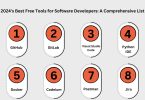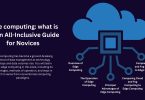Revolutionizing Healthcare with Cloud Computing:
Cloud computing has become the favorite and optimized IT infrastructure solution in the healthcare industry. According to Veritis, a significant majority of the healthcare sector, approximately 83 percent, currently utilizes the Cloud for their primary operations. The Cloud serves as the foundation for enabling essential healthcare technologies such as EMR, Tele-Health, IOMT, AI and Big Data. By leveraging the Cloud, healthcare services shift from isolated applications to patient-centric services, eliminating geographical limitations.
This transformation unlocks the potential for data analytics, facilitating informed decision making for the most effective treatment options while incorporating intelligence throughout healthcare systems. The ultimate objective is to establish a Smart Healthcare Industry that delivers improved healthcare quality and universal coverage to all individuals.
What Is Healthcare Cloud Computing?
Healthcare cloud computing refers to the utilization of remote servers accessed through the internet to handle data related to healthcare. Instead of setting up an on-site data center or storing data on personal computers, healthcare organizations leverage cloud computing services. In the healthcare industry, technology plays a crucial role not only in medical treatments but also in managing the vast amount of data generated. Cloud computing offers a contemporary approach to effectively managing data collection, analysis, presentation, storage and security. This is particularly significant in industries where data is involved in nearly every operational process.
Improving Healthcare Delivery: Harnessing the Power of Cloud Computing:
Need of cloud computing in healthcare.
Why cloud computing is necessary in healthcare sector?
Cloud computing is necessary in the healthcare industry primarily due to the challenges associated with managing the large volume of data generated. Traditional self-managed data systems present various issues such as hardware acquisition, maintenance, security concerns, limited scalability without additional expenses, centralized data storage that hinders accessibility and collaboration, and outdated systems that fail to keep up with advancements in cloud computing and information technology. By adopting cloud computing in healthcare, the industry can experience increased efficiency and reduced costs. Cloud computing streamlines the sharing of medical records, ensuring easier and more secure access to vital patient information. It also automates backend operations, allowing healthcare providers to focus on patient care. Additionally, cloud computing facilitates the development and maintenance of telehealth applications, enabling remote healthcare services and expanding access to medical care.
How Helpful Is Cloud Computing in Healthcare?
Collaboration & Accessibility:
Cloud computing enables seamless collaboration among healthcare departments, staff members and stakeholders. It ensures easy access, sharing and utilization of information, regardless of location. Remote conferencing and collaboration across different healthcare facilities become possible, allowing access to past doctors and patient histories.
Healthcare Related Data Security:
Protecting data is paramount in healthcare; adopting a cloud strategy mitigates the risks associated with non-cloud storage methods. Cloud computing systems proactively identify and address vulnerabilities, enhancing data security. Compliance with HIPAA standards further ensures data protection. Endpoint security solutions like Sangfor’s provide malware recovery, threat detection and vulnerability management.
Scalability:
Cloud-based data management accommodates the dynamic nature of healthcare data. It easily scales up or down, removes or adds data; and adapts to changing organizational needs. This flexibility caters to the continuous influx of data in the healthcare industry.
Cost Efficiency:
Storing, processing and securing data privately is costly and restrictive, especially when scaling is required. Cloud platforms offer pay-as-you-go services, allowing organizations to utilize storage and scalability as needed. This leads to significant cost savings in the long term and a higher return on investment.
Cloud Interoperability in Healthcare:
Interoperability in healthcare refers to the seamless exchange and utilization of data across different information technology systems. Cloud interoperability streamlines access to multiple platforms within a single environment, promoting efficient data sharing not only among staff but also with patients.
Leveraging Cloud Storage for Enhanced Convenience and Security in Healthcare:
Cloud storage is highly sought-after due to its convenience and security advantages over on-premises storage. By outsourcing storage infrastructure and focusing on security, organizations alleviate the infrastructure demands and potential security risks associated with maintaining data on-site.








